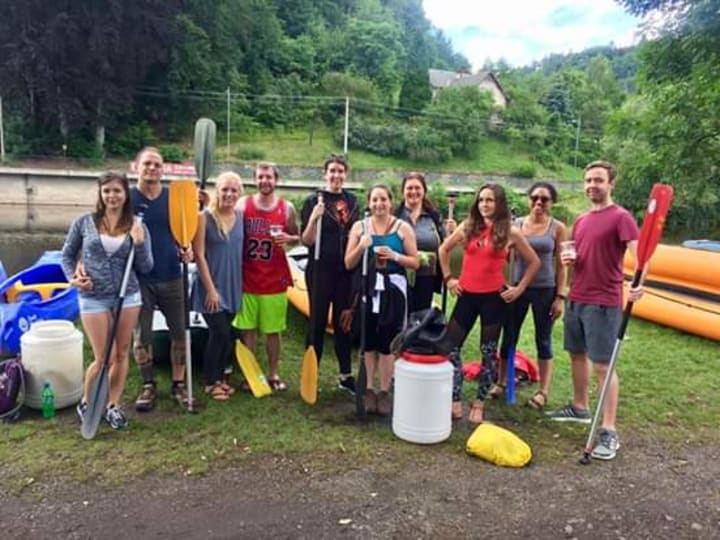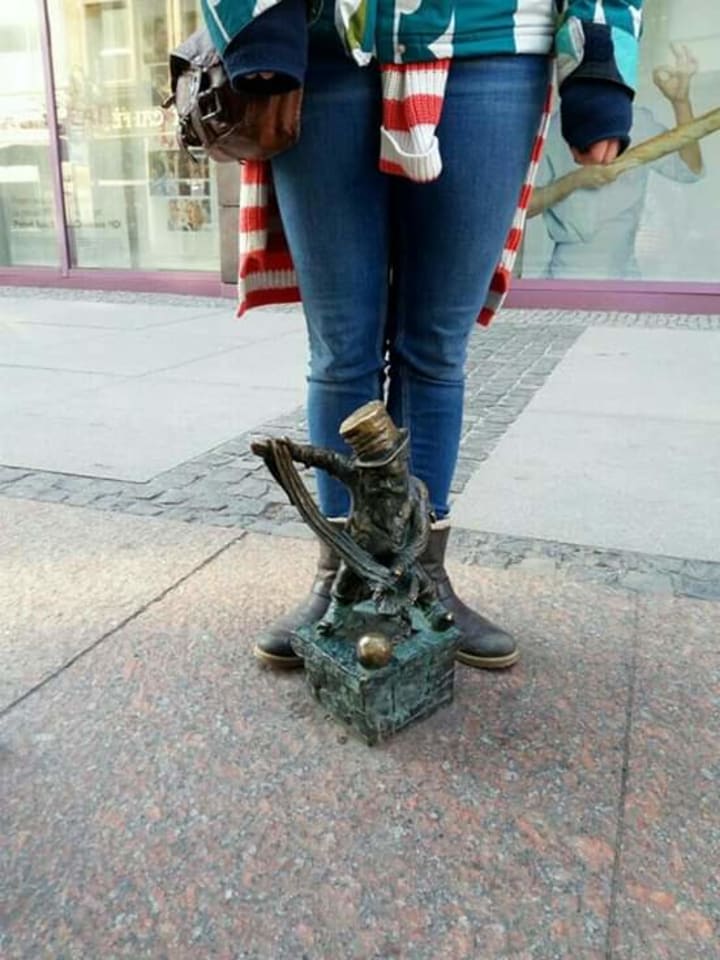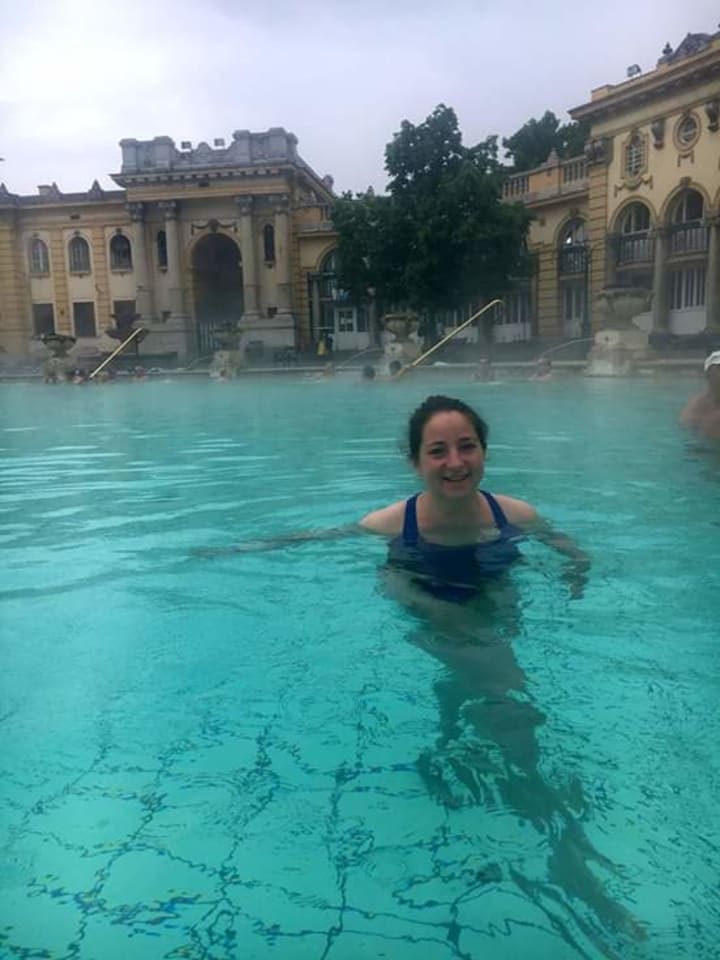Every Day I'm TEFLing
One lost soul's TEFL journey to travel, impact, and cultural immersion, including hot tips and juicy insights.

I was lost after finishing my bachelor's degree. I knew I wanted "out" of academia, and its bubble-like, library-centred existence; I knew I wanted to be IN the world, interacting with people, issues and solutions; I knew I needed at least a little bit of money in order to live my most impactful life; I had no idea where to start.
Luckily for me, my parents understand me better than I do myself. It was their idea for me to sign up to a TEFL course—Teach English as a Foreign Language.
This resonated with me on many levels. I've always been a bit of a language nerd, and I enjoy public speaking and lecturing (with or without the listener's consent). Perhaps most significantly, it would also enable me to travel and live in as many countries as I saw fit.
Make Sure the Shoe Fits
We spent some time studying various options. I knew I wanted a condensed course, so we narrowed our search down to the 4-week programs. Having studied for three years in the north of the UK, my Italian father insisted I go south to absorb some culture. I had spent too long amongst the 'barbarians' and was apparently losing my 'Italianness.' We focused on courses in Italy (I know, I know, I went to Italy to learn how to teach English??).
I wasn't exactly sure what TEFL teaching entailed, but I knew what I needed in order to succeed: theoretical foundations, practical applications, peer focus-groups, independence.
After scouring the myriad of courses available, we stumbled on the Via Lingua courses. These stood out for a wide variety of reasons:
- Trainees are thrown into authentic teaching situations as early as the first week
- They practice both team and individual teaching
- They are reviewed by both their peers and their instructors
- They get two teaching assignments to be completed independently, even sourcing their own students
- They are encouraged to immerse themselves fully in the local culture through assignments and personal exploration
- They get a taste of their own medicine in a local language class
- They get help formatting their resumés and finding their way in the professional world.
As well as this, trainees are taught a lesson structure that is endlessly versatile (although it's an art to master). If you want more information on their courses, check them out here: Via Lingua.
The culmination of the course is an assessment of teaching practice, assignments, and performance in a grammar and pronunciation exam. Students must be able to both use and explain the elements of grammar and pronunciation correctly. The Via Lingua certificate is recognised by many institutions, so it's an excellent certification to have in your pocket.
Of course, it didn't hurt that this programme took place in Florence, one of the most beautiful cities in Italy.
So off I went, suitcase in tow, not really knowing what to expect but looking forward to cappuccinos, wine, and excellent food. I'll admit, I was also quite nervous on a few levels. The course sounded full-on and slightly terrifying, and it would be my first time living alone as an 'adult' without a steady income. But I squared up to my nerves and made Florence my home.
Eating, Living, and Learning in Florence
How can I describe these four weeks? They were undoubtedly some of the most intense in my life. One of the first things I remember is the instructor telling us that this was a Master's degree condensed into a month, and it definitely felt like it. There was a lot of stress, nerves and work.
But there was also so much learning, with amazing instructors who showed us the value behind everything they taught us. There was a helluva lot of fun, both in and outside of the classroom. As a group of total strangers, we bonded in our stress, curiosity, growth and love of travel.
I quickly found a favourite bar near my flat, in the Italian sense of a place to go for coffee and a pastry, where friendship readily developed with the aged and grizzled barista. He took to affectionately calling me "topino," little mouse, by the end of the first week.
With my new-found TEFL friends, we methodically narrowed down our favourite delis, gelaterias and restaurants. We thoroughly explored Florence and visited other parts of Tuscany, travelled together to visit my grandparents, worked in cafes, gelaterias and restaurants, organised study parties. The friends I made there will be with me forever.
As will my TEFL Certification. Fresh from the course, I made a profile on TEFL.com, which also has a handy, if slightly clumsy, app. It's a very comprehensive platform. Job-seekers can filter where they want to work, what age-groups they wish to teach, and what type of organisation they want to teach in, while employers can filter for teachers who match their needs.

Trainee teachers hard at work

Study party? Pasta party? That's for me to know and you to never find out
Graduating and Moving to the Czech Republic
All of us found our jobs through TEFL.com. None of us had a fixed geographical target in mind, so it made finding jobs relatively easy, as we were highly flexible.
Some tips:
- Non-English speaking countries are easier to find jobs in as a beginner teacher.
- Popular destinations, like Italy, Greece, or Spain, will probably pay lower salaries.
- Eastern Europe has an attractive market for TEFL teachers at the moment.
- Countries in Asia or the Middle-East, especially China, Oman, Dubai and the Arab Emirates pay the big bucks, as well as paying for your flights and your accommodation.
- Use your inexperience to your advantage: sell yourself as a blank canvas that future employers can mould to their standards. Many schools are actually more likely to hire inexperienced but motivated teachers over veteran teachers with entrenched habits and mentalities.
After a few Skype interviews, I ended up turning two offers down and choosing a school in the Czech Republic.
Remotely interviewing for a teaching position usually involves the following elements, not necessarily in this order: meet and greet with the potential employer; creation of a lesson plan; delivery of a demo lesson or submission of a video taken during one of your classes; and a situational interview, where theoretical situations will be suggested to you to see how you would react.
People always asked: what made you come to the Czech Republic? To be honest, I didn't choose the country; I chose my bosses. Based on the interviews, I resonated and meshed so well with the bosses that I knew we would work well together—and we did, for two happy years. I recommend that you make choosing your bosses and colleagues a priority over which country you want to go to. Hopefully, you'll get to go to every country on your list!
Imbibing Local Culture

Beer is so important to the Czechs that it has a lobby to prevent the government raising the price. It's cheaper than soft drinks and bottled water!
As mentioned above, I lived and worked in the Czech Republic for two happy years. I made more lifelong friends amongst both colleagues and students. I learnt Czech and immersed myself in local life. My friends and I explored as much as possible in and around the Czech Republic. I visited seven cities around four countries, countless castles, many mountains, and numerous national parks. I also grew so much professionally, becoming more comfortable in my persona as a teacher. However, most of my growth was outside of the workplace.
I absolutely loved going to the shopping centre and chatting to the cashier, going to local restaurants and cafes, or joining sports teams and exercise classes using my developing Czech skills. I found that life took on a new richness and glow, that it had more spice, more of a kick to it, as I worked to integrate and understand my temporarily adopted culture.
Teaching, more than hospitality or agricultural work, enables you to truly become a part of a community. Your relationship with your students is your gateway into their country. They'll let you into the habits, customs, and traditions of your area. They'll tell you what locals do and where they go on their days off. They'll reveal to you where to eat and drink. If you're lucky, they'll even invite you for coffee, tea, or dinner! As their English teacher, you become quite a valued figure to them: never underestimate their value to you. There is so much to learn from them.

Students take you on the best adventures! Rafting downriver, from pub to pub (Jizerka mountains, Czech Rep.)

There's nothing like a Christmas Market! (Dresden, Germany) GnGn

Gnome-hunting in Wroclaw, Poland

Engaging with the darker face of History at Auschwitz, Poland

Exploring local ruins in Cesky Raj, Czech Rep.

Making like a Budapest local and healing myself at the historical Sezchenyi Medicinal Baths
The Next Steps
Around the one-and-a-half-year mark, I began to get itchy feet. I made plans with a friend to travel to Australia the following winter, found a summer TEFL job in the Channel Islands to bridge the gap (I ended up having to turn offers down again!), then found an online teaching job, meaning I would be able to teach English from wherever. I found both of these jobs on TEFL.com. As you can see, the TEFL course really opened up the world to me.
The online teaching business can be a lucrative one, but companies differ immensely between each other and freelancing is a tough gig in this industry. The primary market for online teaching is in China, so most companies are Chinese-run. However, over the last few years, there has been a marked increase in European or USA-based online schools. Things to consider are: how many hours do you want to work? What timezone best suits the hours during which you want to be working?
I interviewed with a few online schools, and the process is much the same as interviewing for a traditional school: demo classes, lesson plans, situational questions.
Personally, my teaching style didn't mesh well with a lot of the Chinese-run schools. Our mentalities regarding content creation, student-teacher interaction, and praise differed slightly. However, they provide a lot of work, and you can quickly become a very established teacher. I was drawn to VivaLing, an online school with a presence throughout Asia, Europe, and the USA whose ethos and philosophy sat very comfortably with me. They are also very generous and reliable employers. Check them out here: VivaLing.com
Some Concluding Thoughts...
If you're simply looking for a way to support yourself on a year, or two, around the world, TEFL teaching is the ideal option. It's a great way to meet like-minded people, immerse yourself in the local community and make decent money. If you don't also have a passion for language and teaching in one form or another, you'll tire of this work quite quickly, but it's always suitable for a part-time or short-term gig.
Since moving to Australia, my life has taken a slightly different turn, and I've started focusing on freelance writing and content creation. If this works out, it too will enable me to travel and make a living from wherever I end up. However, I'm also secure in the knowledge that I can turn to TEFL teaching at any time, without compromising my desire to see the world and to have an impact on whatever community I happen to be a part of.
I'll let you into a secret: I'm getting bored living in a country where English is the mother tongue. I'm ready for the challenge of a new language again! Grocery shopping is so much more engaging when it's also a growth experience...
About the Creator
Chiara Torelli
Student of Life, thalassophile
Multi-national polyglot
Books, outdoor sports, arts and crafts, food and wine/cocktails






Comments
There are no comments for this story
Be the first to respond and start the conversation.